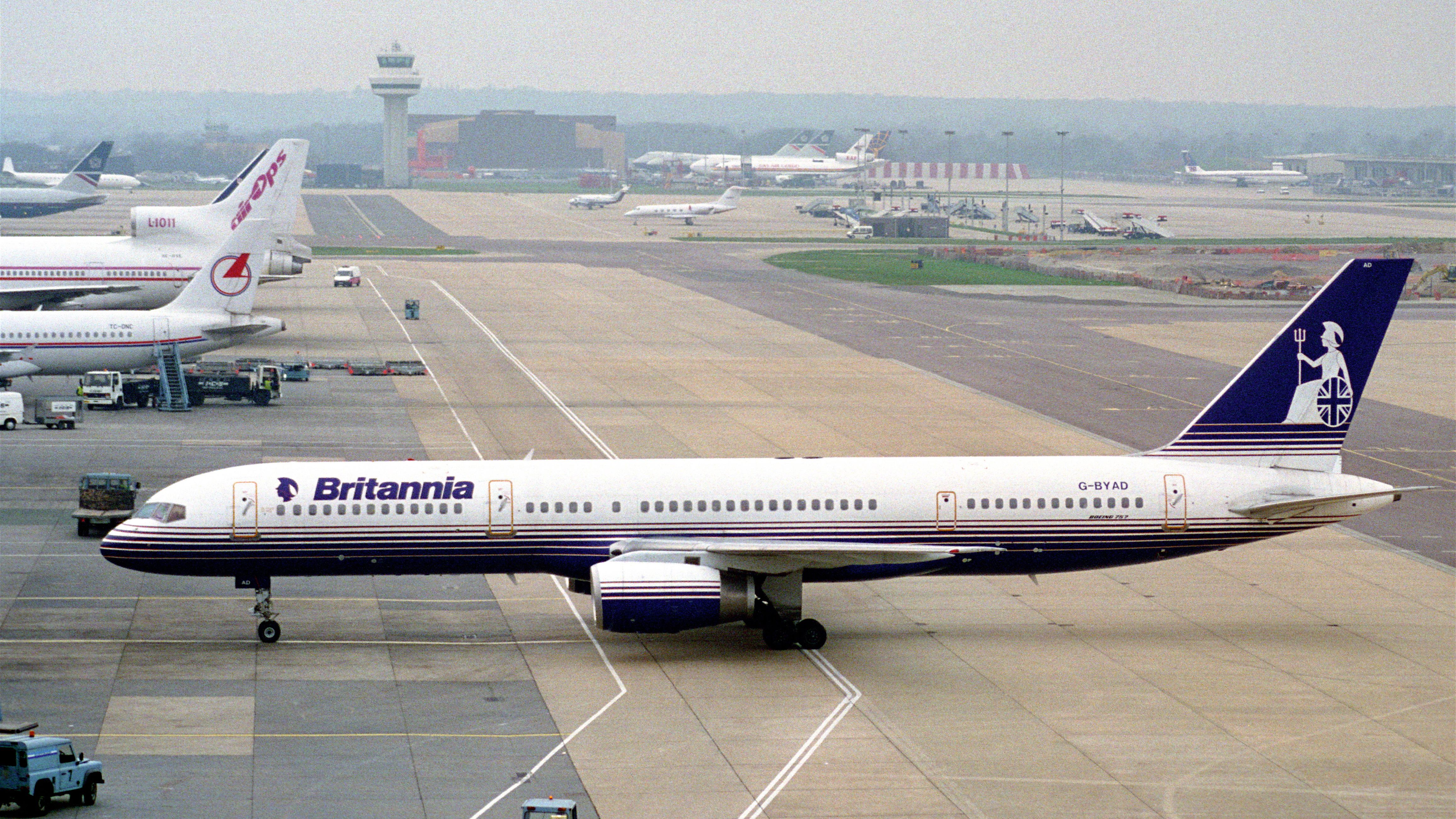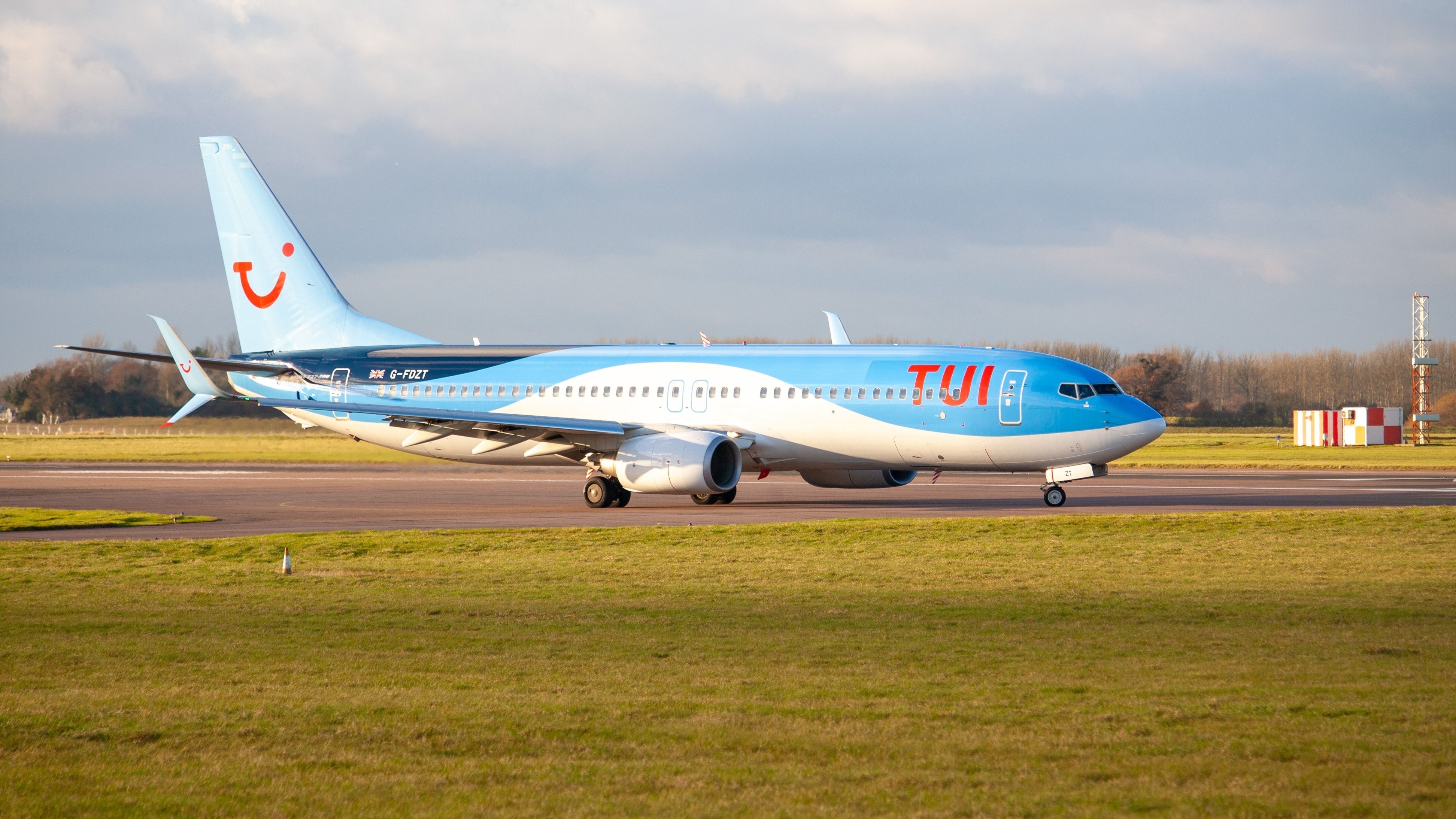Britannia Airways was one of the world's leading holiday package airlines for decades, pioneering many features that passengers today take for granted. The firm dominated much of the market within the United Kingdom for years before it was absorbed into TUI's restructure in 2004.
Strong start
Britannia commenced operations in 1962 under the name of Euravia, flying out of Luton Airport. During these early days, it operated three Lockheed Constellations, before acquiring five more of these aircraft and launching additional services using four Avro York Freighters. It signed off the year by purchasing rival Skyways, which held a strong presence in the UK aviation scene during the previous decade.
Despite launching at a time when several airlines in the country were going bankrupt, the carrier managed to break even within just ten days of its first passenger flights. It didn't take long for its first official rebrand - the name Britannia Airways was officially given in 1964.
Additionally, the new title matched its Bristol Britannia turboprop airliners that soon arrived. Altogether, 1964 was a successful year for the company, serving 131,296 passengers.
Company overhaul
1965 was a significant turning point as Thomson Travel Group took on the brand in April. This helped spark Britannia's rapid transition into the jet age. Following the move, the outfit ordered its first brand-new aircraft, the Boeing 737-200. Subsequently, it became the first European airline to operate the plane type.
With its new addition, Britannia showed its presence in a new generation of commercial aviation. Several passenger segments began flying for the first time during this period due to lower prices and increased demand. To stand out among its rivals, it became the first charter airline to offer assigned seating, along with hot inflight meals.
This era saw great results for Britannia, serving just under 42 million passengers between 1968 and 1984. It went on to operate 29 Boeing 737s during this time, and also became the first airline to operate the Boeing 767 in Europe, flying two of the widebodies. With these units, it also became the first UK holiday carrier to offer free inflight entertainment. The 80s saw a sharp rise in demand for package holidays, with Britannia perfectly placed to capitalize.
Continued rise
Building on its success with its 767s, Britannia launched regular charter flights to Australia and New Zealand in 1988. Orion Airways was also taken over by the airline in the same year due to Thomson snapping up its parent, Horizon Travel.
Flights continued to expand across the globe as the 20th century came to a close. New services to Asia, Canada, South Africa, and the United States meant that by 1997, long-haul services made up 34% of its operations.
During the summer of 1998, it stood tall with three Airbus A320s, one Boeing 737-800, 24 Boeing 757s, and 13 Boeing 767s. It deployed these jets from its bases in Germany, Scandinavia, and the UK, making it an all-encompassing European outfit.
Discover more aviation news with Simple Flying.
21st-century changes
At the turn of the millennium, Germany-based Preussag AG, now known as TUI AG, purchased Thomson. This meant that Britannia had new owners to answer to for the next few years. Eventually, the outfit was rebranded into Thomsonfly in the first of a series of revamps over the next decade.
In November 2008, the carrier merged with First Choice to form Thomson Airways. Finally, TUI Airways was established in 2017, the latest incarnation of the historic airline.
The Britannia legacy
Despite no longer operating in its most prominent form, Britannia left a legacy in the British airline industry with a series of firsts, including onboard entertainment, seat selection and hot meals.
While the high-profile bankruptcies of holiday airlines Monarch and Thomas Cook within the past decade may have dampened confidence in such carriers, the UK is still home to two successful holiday package airlines - TUI Airways and Jet2.com. In fact, Britannia descendant TUI is preparing for its biggest-ever summer in 2024, where it will offer over 10 million seats for UK holidaymakers.
What are your thoughts on Britannia's story? Do you have any fond memories of traveling with the airline? Let us know what you think in the comment section.





